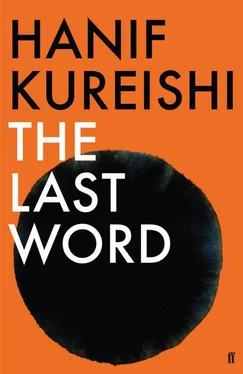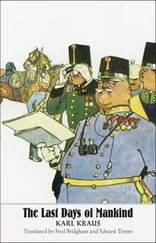‘Some of the interviews in Evenings with the Killer were fabricated, of course. That must be well known.’
‘No one else has said that. Didn’t he tape them?’
‘Yes, and they were transcribed, sometimes by Peggy, sometimes by me or a secretary. When he sat down to write up the material, considerable work was done. He was never at that famous execution. He admitted to me that he was only “almost” there.’
‘He’s a creative artist who made—’
‘Or made up,’ she said. ‘He omitted material, altered other things, fudged and even rewrote quotes, to suit the piece. He wrote about places he’d never been, and things he’d never seen.’
Harry shrugged. ‘That’s novelists for you. Bastards.’
She said, ‘No doubt you’ll find yourself doing the same.’ She was looking at him. ‘It’s occurring to you that that would be a good idea.’
‘“Stolen-telling,” Joyce calls it. And Mamoon did say, rather wisely, “I hope you’re not going to be one of those fool writers who thinks the facts are sufficient.” He thinks that originality is the art of stealing the right things. He’s an entertainer. .’
‘How cheap and nasty you are. I suspect you might be something of an argumentative nuisance. Is there really any point in us going on with this? If I could stand up, I’d stand up right now,’ she said, and turned away.
Today would be difficult. Would he get anywhere? Should he walk out? He waited in silence, as his father would have suggested.
‘You gave up a lot for Mamoon,’ he said at last.
‘Yes, yes, everything.’
‘How could it not be difficult for you to speak about it?’
‘Exactly.’
There was more silence; then he sighed in relief as she went on. Her husband was no loss, but her beloved children had been furious that she’d traded her family for what her ex-husband called ‘personal excitement’. But Mamoon, like Omar Sharif, whom she believed he resembled, was a man a woman could give things up for. Marion loved him, he was her destiny; she thought that love was the only game in town. Although he came to America less often because of Peggy’s incapacity, she had taken it for granted he would look after her for life. He had said he would.
Marion had had no reason not to believe Mamoon. Their love life had been more fulfilling and stronger than anything she had encountered before, and they had been together properly. Apart from her, there had only been Peggy, and, at the end, she found they were both waiting for poor Peggy to die. She had nothing against Peggy — though she did refer to her as a ‘bed-blocker’ — and she admired Mamoon for sticking by her. He had fulfilled his ‘futile’ duty.
‘Futile, you say. Why?’ Harry asked.
‘As far as I could see,’ she said, ‘because the two of them had lived in such a closed circle, with very little outside influence, she had hypnotised him into believing that not only was he the cause of her suffering, but that he was the only cure. I freed him from this false belief.’
Not that she’d been thanked. At the end, Marion hadn’t seen Mamoon for more than a year. The day came when she learned that Peggy had died, and she’d readied herself for Mamoon’s call. At last she would leave New York and move to England to be with him in his house. She had already been thinking of how she’d furnish it. The windows would be opened, Peggy’s things put away immediately, and everything rearranged. She didn’t want to live with a dead woman.
She rang Mamoon. The woman who picked up the phone — Harry guessed it had been Ruth — said she would take a message. This happened a number of times; Ruth had passed on the message, she said. Days passed and Marion heard nothing. She guessed Mamoon was busy with the funeral arrangements and other mourning matters. More time passed.
When she didn’t hear from him, she went to Bogotá, and travelled in Colombia, suffering and seeing him everywhere. It wasn’t for some months that she learned from a magazine that he’d married Liana, whom, she also learned, he’d met about eighteen months previously, promoting his work in Italy. Apparently, Mamoon had returned to see Liana several times and they had rented a flat in Paris together. He’d eventually taken her to Venice, where he proposed. Marion examined photographs of them together, and everything she’d tried to forget returned.
Desperate for an explanation, Marion wrote to Mamoon often; she rang repeatedly. Then, unusually, Mamoon did pick up the phone, as he might do occasionally if he happened to be sitting near it. He said he was surprised to hear from her; he informed her that of course it was too late. Everything between them had died some time ago. Hadn’t it been obvious to her? She had nothing that he wanted. You had to fail people at the right time, he said, memorably. As a good deal of her past and all of her future suddenly dissolved, Marion screamed and raged. Mamoon said she’d cooked up ridiculous fantasies, and shouldn’t contact him again; he was a happily married man and that was that, for him. He put the receiver down.
Harry watched her weep again, and flail at a cushion on her sofa. He was embarrassed and uncomfortable; he’d wanted to write an informative book celebrating a good writer, not lead an elderly woman through a psychodrama towards a nervous breakdown.
This initial conversation with Marion had already taken up most of one day, and he needed to think through what she had said. He returned to his hotel, checked his tape and made notes.
He called Alice to let her know how exhausted he was. To his surprise, he found that she had been with Liana and Mamoon all weekend.
‘You’re there now?’ he asked.
‘Yes. He knew you were going away, so they invited me down,’ she said.
‘Cunning.’
‘Kind, in my condition. I need rest, and I needed to bring some ties, shirts and other things for Mamoon.’
‘Did he like them?’
‘He was delighted. He wants to update his look.’
‘Makes sense.’
‘Anyhow, they love my company, and I find it restful here. Mamoon wants to regain his strength; we’ve been taking long walks.’
‘You have? Talking about what?’
‘It’s just chatter. It’s amazing, Harry, I can say anything to him and he doesn’t judge but always has something intelligent to say. His brain is massive. It’s so good for me to relax here, particularly now I’m so anxious.’
‘Why don’t you write down what he says when you get back to our room?’
‘Whatever for? You know I believe in living in the moment. It’s a private conversation about everything.’
‘What is everything?’
‘Life, fathers, art, politics, sex.’
‘Does he know anything about that?’
‘He has thought deeply, Harry, more than the average man, you know that, and everything he says is interesting, which is why you study him. He’s psychoanalysing me and looking into my problems with debt. I’m terrified he’ll find me superficial or narcissistic, as your father did the last time we went to the house.’
‘My father did what, Alice?’
‘Your voice has gone castrato. Don’t be oversensitive on that subject.’
‘Sorry?’
‘You said you never take women to meet your father.’
‘They have to be very special. It was a big thing for me, Alice.’
‘I was having palpitations. Surely you remember, after we’d sat down, how he looked around the table, banged it with both hands and said, “Tell me, what are your views of the financial crisis?”’
‘What were they?’
‘I was so intimidated I had a panic attack, which was why I fled to the loo to splash my face with cold water. It was like suddenly being on television.’
‘I know you prefer invisibility.’
Читать дальше












